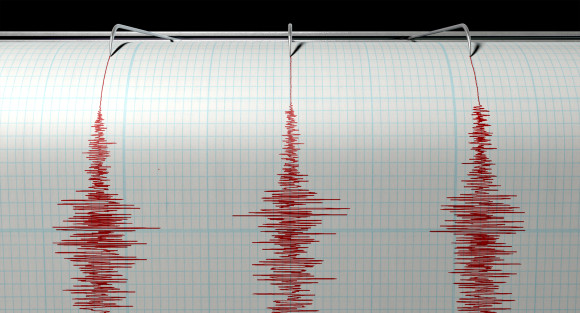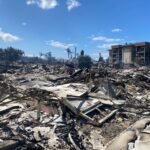Sierra Club weighed into the controversy over fracking and increased earthquake risk with a lawsuit accusing a Chesapeake Energy Corp. unit, Devon Energy Production Co. and New Dominion LLC of triggering tremors in Oklahoma and Kansas.
The environmental group said the companies’ practice of injecting liquid oil and gas waste into deep ground-wells contributed to a spike of more than 5,800 earthquakes in Oklahoma in 2015, up from an annual high of 167 in the years from 1977 to 2009, according to the complaint filed Tuesday in federal court in Oklahoma City.
The lawsuit, which follows more than 20 others since 2011 making similar allegations, comes after a 5.1 magnitude quake shook the region Saturday.
The companies “have contributed and continue to contribute to the increased seismicity triggered by the waste handling, transport, and disposal activities at the injection wells owned or operated by the defendants throughout the state of Oklahoma and southern Kansas,” according to the complaint.
Chesapeake disagrees with the Sierra Club’s claims and will address them in the appropriate forum, Gordon Pennoyer, a company spokesman, said in an e-mail.
Devon declined to comment on the complaint and officials at New Dominion couldn’t immediately be reached for comment. David J. Chernicky, chairman and founder of New Dominion, said in an interview last year with Bloomberg Businessweek that evidence tying underground wells to earthquakes is unreliable and expressed confidence New Dominion would prevail against an earlier lawsuit.
The Sierra Club wants a judge to force the companies to curb the amount of waste being injected into the layers of rock just above the continents’ crust in order to reduce the risk of earthquakes. The court should also order the companies to “reinforce vulnerable structures that current forecasts indicate could be impacted by large magnitude earthquakes during the interim period,” according to the complaint.
Oil Industry on Knees
“This is an unexpected risk coming at the worst possible time,” said Peter Pulikkan, an energy analyst at Bloomberg Intelligence. “The oil industry is on its knees, the business models are busted. And now you have this threat of disposal wells being linked to earthquakes that could put companies with material exposure permanently out to pasture.”
Evidence linking oil and gas companies to seismic activity in the region is growing, according to a Bloomberg Intelligence report. In 2015, Oklahoma Governor Mary Fallin acknowledged the relationship between the two, while state regulators have imposed new rules for fracking in an effort to reduce the quake risk.
“Chesapeake respects the Oklahoma Corporation Commission’s regulatory authority and technical expertise and is complying with the commission’s directives,” Pennoyer said in his statement.
Neither the U.S. Environmental Protection Agency nor the state of Oklahoma has taken legal action to address “the imminent and substantial endangerment to health and the environment” of the fracking waste practices, according to the complaint.
The case is Sierra Club v. Chesapeake Operating LLC, 5:16- cv-00134, U.S. District Court, Western District of Oklahoma (Oklahoma City).
–With assistance from Meenal Vamburkar, Joe Carroll and Asjylyn Loder.
Related:
- Oklahoma Residents Sue 12 Energy Companies Following Earthquakes
- 5.1M Quake Among Latest Swarm of Temblors in Oklahoma
- Earthquakes May Be the ‘800-Pound Gorilla’ in Oklahoma Legislature
- Coalition Wants Well Moratorium in Oklahoma Earthquake Areas
- Oklahoma Judge Won’t Toss Suit over Earthquake Damage
- Safety Experts: Oklahoma Quakes a National Security Threat
Topics Lawsuits Catastrophe Natural Disasters Claims Energy Oil Gas Pollution Oklahoma Earthquake
Was this article valuable?
Here are more articles you may enjoy.



 Finance Firms’ Return-to-Office Crackdown Could Backfire: Deloitte
Finance Firms’ Return-to-Office Crackdown Could Backfire: Deloitte  Commercial Property Loans Are So Unappealing Banks Trying to Dump Them
Commercial Property Loans Are So Unappealing Banks Trying to Dump Them  Maui Fire Is Deadliest in US in 105 Years, With 93 Killed
Maui Fire Is Deadliest in US in 105 Years, With 93 Killed  Average Cost of a Data Breach Has Reached an All-Time High: IBM Report
Average Cost of a Data Breach Has Reached an All-Time High: IBM Report 

